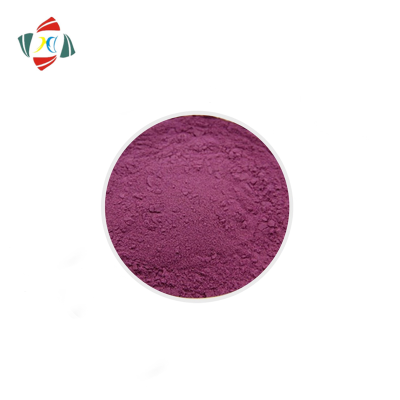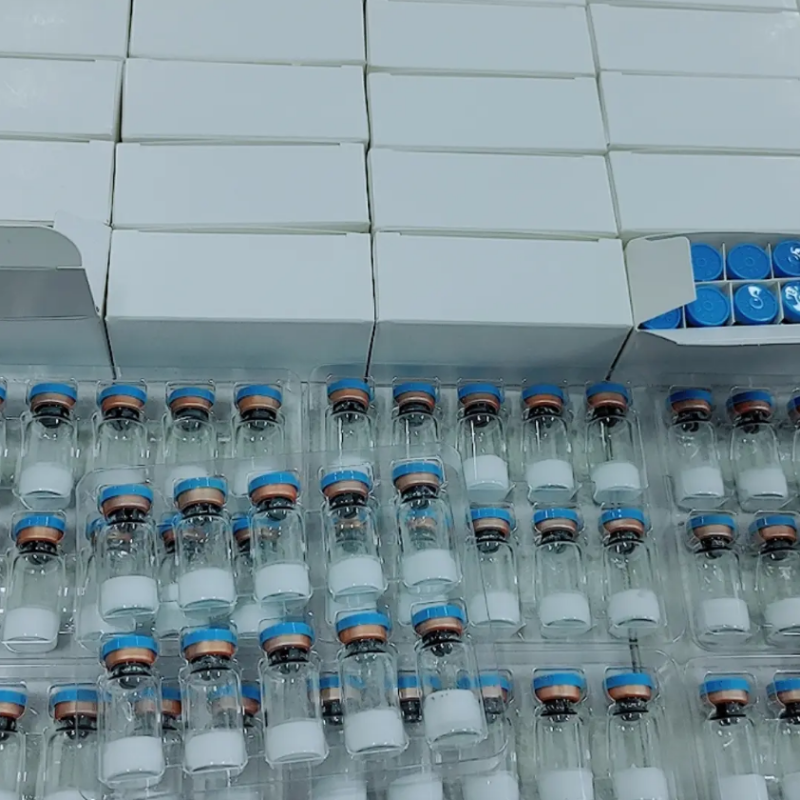-
Categories
-
Pharmaceutical Intermediates
-
Active Pharmaceutical Ingredients
-
Food Additives
- Industrial Coatings
- Agrochemicals
- Dyes and Pigments
- Surfactant
- Flavors and Fragrances
- Chemical Reagents
- Catalyst and Auxiliary
- Natural Products
- Inorganic Chemistry
-
Organic Chemistry
-
Biochemical Engineering
- Analytical Chemistry
- Cosmetic Ingredient
-
Pharmaceutical Intermediates
Promotion
ECHEMI Mall
Wholesale
Weekly Price
Exhibition
News
-
Trade Service
SourceChina Biotechnology Network
remove abnormal cells.
As a security mechanism, healthy cells often have tags built into them that the immune system recognizes to prevent false attacks
.
However, once this mechanism is manipulated by cancer cells, this defense network may become vulnerable
.
Over the past decade, immunotherapy has revolutionized the cancer treatment landscape, using immune checkpoint blockade (ICB) cancer immunotherapies such as CTLA-4 and PD-1/PD-L1 monoclonal antibodies to significantly improve outcomes for cancer patients
.
However, a significant proportion of cancer patients do not respond to
these immunotherapies.
Therefore, new strategies need to be found to participate more effectively in the anti-tumor immune response to expand the group of
beneficiary patients.
In search of a breakthrough, some scientists have begun to focus on sugar molecules
on the surface of cancer cells.
Sialic acid is a special glycan that can be recognized by a range of surface proteins, mainly found in innate immune cells, but also in activated T cells at tumor sites
.
The team of Heinz Läubli of the University of Basel in Switzerland, together with Carolyn Bertozzi of Stanford University, winner of the 2022 Nobel Prize in Chemistry, and others, in Science Translational Research paper entitled: Targeting cancer glycosylation repolarizes tumor-associated macrophages allowing effective immune checkpoint blockade was published in Medicine.
This study provides mechanistic evidence for tumor sialylation-mediated immunosuppression, demonstrates the effectiveness and feasibility of desialylation in anti-tumor, and highlights its potential
for use in combination with classical immune checkpoint blockade therapy.
In the tumor microenvironment, sialylation of tumors helps to establish an immunosuppressive environment and inhibit the antitumor immune response by immunoregulatory immunoglobulin-like lectins (Siglec) expressed on tumor-infiltrating immune cells
。 Recent studies have shown that the sialate glycan-Siglec axis is a novel immune checkpoint that can serve as a target to drive innate and adaptive anti-tumor immunity
.
However, given the presence of multiple Siglecs and their extensive expression patterns in the immune system, the exact mechanism is unknown
.
In previous research work, the team has identified Siglec-9 as an inhibitory receptor expressed on tumor-infiltrating T cells in different cancers, indicating that desialylation of tumor cells can stop tumor growth and lead to improved anti-tumor immunity in mouse models; Moreover, treatment with sialidase can achieve similar results
.
However, the feasibility of this enhanced immune checkpoint blocking therapy remains to be demonstrated
.
In the new study, the researchers first analyzed all solid tumor data in the Cancer Genome Atlas (TCGA) database and found that the expression of sialic acid glycan genes correlated
with the expression of immune genes.
Tumor sialylation is associated with
different immune status and reduced survival in human cancers.
Subsequently, the researchers investigated in more detail the cellular and molecular mechanisms
of sialic acid-mediated immunosuppression using therapeutic desialylation in different mouse tumor models.
In several mouse models, they used an antibody-sialidase conjugate (trastuzumab-sialidase) to target the removal of Siglec ligands in the tumor microenvironment, enhancing anti-tumor immunity and preventing tumor development
.
Single-cell RNA sequencing showed that tumor desialylation repolarized
macrophages in mouse and human tumors.
Siglec-E is a major receptor
for highly sialylated macrophage surfaces.
Finally, the researchers found that genetic and therapeutic desialylation, as well as loss of Siglec-E, enhanced the efficacy
of immune checkpoints.
Therefore, therapeutic desialylation is an immunotherapy
approach to remodeling the macrophage phenotype and enhancing the adaptive anti-tumor immune response.
In conclusion, these results provide a strong basis
for the further clinical development of sialic acid glycan-Siglec targeting agents and their combination with PD-1 and CTLA-4 blocking immunotherapies.
Link to the paper: style="color: rgb(136, 136, 136);font-size: 12px;" _mstmutation="1" _istranslated="1">
open reprint Welcome to Moments and WeChat groups







